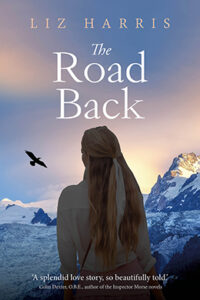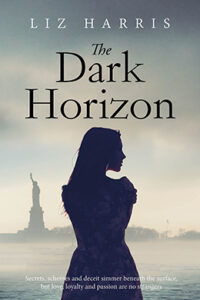Last Friday evening, I went to a highly informative talk organised by The Friends of Watlington Library. The speaker was Anthony Forbes-Watson, Chief Executive and Managing Director of Pan-Macmillan. His subject was
The World of Publishing
In his talk, Anthony addressed the ways in which publishers were adapting to changes in the modern digital world, how they were facing the challenges posed by international markets and how they were handling the aspirations of today’s authors.
I’m assuming that many of you will have attended talks given under the auspices of the Romantic Novelists’ Association and the Verulam Writers’ Circle, to name but two, and that you already know a great deal about the state of the publishing industry today so, instead of summing up the content of this stimulating talk, I intend to pick out some of the points that I found particularly interesting.
Did you know that…
1. … Jeffrey Archer has women to thank for the fact that he’s now doing a five-book saga? Readers were given pages of his work without knowing who wrote it, or even if the author was a man or a woman. 65% of the readers thought that the pages had been written by a woman. As a result, Jeffrey Archer was asked to write a saga.
2. … fewer than 50% of the population buy books; 30% of fiction sales are electronic purchases; 27% of the population have no internet access?
3. … in India, ten times more is spent on ring tones for mobile phones than is spent on purchasing/downloading music?
4. … the UK market is small, but the reach of English is huge and the publishers, needing more markets, are increasingly looking overseas? US publishers, with a huge potential market, have no need to be internationally minded.
5. … Germany, France and Spain still have Retail Price Maintenance and don’t have an ebook market?
6. … the lack of demand for audio books, for which there’s only one distributor in the UK, relates to the short length of car journeys in the UK? Audio books are in great demand in the US, where car journeys are much longer.
7. … In France, entry to literary festivals is free?
8. … 3 reasons given by Amanda Hocking as to why, after becoming a self-publishing dollar millionaire, she signed with a traditional publisher were a) self-publishing was lonely; b) it was time-consuming being a businesswoman; c) she thought that if she stayed alone, she might lose her fame as swiftly as she’d gained it?
Bye for now! Have a good week, all of you.





Fantastic post, Liz. I especially enjoyed your summary of points about publishing. It’s amazing that fewer than 50 per cent of the population buy books. I can’t resist them!
I was amazed, too, Emma. Also the point about the market for mobile ring-tones in India being so much more valuable than that for music. What power it gives the mobile!
Extremely interesting post, Liz. I had no idea about the lack of demand for audio books in the UK. Makes sense when you think about it!
Thanks, Sheryl. I was surprised, too, but it does make sense. Apparently, they’re sometimes put into an author package – an interview with the author and the audio book.
Useful info there, Liz. Thank you for posting it.
Many thanks for your comment, Chris.
Wow, Liz, this a great post. So informative and such a turn-up with some of those facts. Sounds like you had a fab time. Thanks so much for sharing with us 🙂 x
Thanks, Jan. Yes, it was a good evening – and not just because we were given wine and smoked salmon! I was quite surprised by what the speaker said, and I thought that Amanda Hocking’s third reason for signing with a traditional pulblisher was interesting.
Illustrated as well!Thanks,Liz
Sylvia
Many thanks for taking a look, Sylvia.
Interesting, Liz, the comment that “Germany, France and Spain […] don’t have an ebook market”. Did he mean the market was miniscule in those countries, i.e insignificant?
You can buy ebooks on amazon.de (including mine!), but many French neighbours and friends, and even the hospital staff during my stay recently, were intrigued by my Kindle.
The fact the retail price of books is still controlled in those countries, he said, meant that there was a more deferential approach to books.
Without the ability to discount books widely, I imagine that ebook sales, under the auspices of French, German and Spanish outlets, would be severely restricted.
I imagine that people in those countries would still be able to access, and buy, ebooks through companies based elsewhere, though.
Indeed. If I buy physical books online, I buy from the UK and grin and bear the postage as it’s cheaper overall than buying it on the same company’s French website.
Some really interesting statistics and info there Liz. Thanks for sharing it!
This was fabulously interesting. I loved it. Who would think that all that happened or was said in little historical Watlington. You captured the essence of that talk brilliantly, Liz.x
Ooh, thank you, Carol.
Great post Liz. Still reeling that he blamed women for Jeffrey Archer! 🙂 X
Confession time – I loved JA’s early books.
A really interesting report and a thought provoking post, Liz. Thank you for it.
Janice xx
Thank you very much for looking at my blog again and for commenting, Janice.
Hi Liz, there are some interesting facts here that I had no idea about. I read all of my Dad’s Jeffrey Archer’s books when I was a teenager on summer holidays-he does know how to write a great plot.
my Dad’s Jeffrey Archer books-sorry (I have my editing brain on and noticed my mistake when re-reading the comment!)
I’m always picking up mistakes on comments that I’ve made AFTER they’ve been published. I did that only two days ago in my comment on Alison Morton’s latest blog. I left a word out. It’s so easily done 🙂